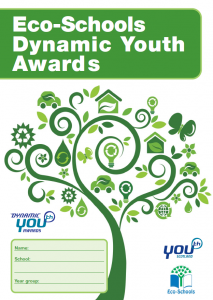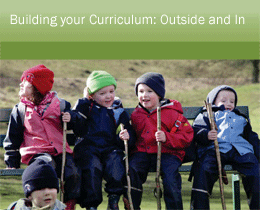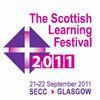

Global Citizenship blog
 Accrediting the achievements of individual Eco Committee members
Accrediting the achievements of individual Eco Committee members
Youth Scotland have worked together with Eco-Schools Scotland to produce a booklet designed to support members of a school’s Eco Committee to receive accreditation for their individual achievements. Young people complete the relevant sections of their booklet as they work through the Eco-Schools programme. The booklet has two aims: (1) to support young people to collect evidence which will be used for them to gain a Dynamic Youth Award, and (2) to strengthen the Eco Committee’s work towards Eco-Schools’ targets. The individuals receive a Dynamic Youth Award, which recognises the responsibility level they took as well as their achievements.
Schools wishing to use the booklets should email: [email protected]. There is further information at: http://www.youthscotland.org.uk/projects/dynamic-youth/understanding-the-award/eco-committees.htm
More Building your Curriculum: Outside and In
Building your Curriculum: Outside and In
As an active and productive pedagogy, outdoor learning is an integral part of good practice within learning and teaching. Planning for regular, frequent learning outdoors ensures that progressive and sustainable outdoor learning opportunities are embedded in the curriculum and that they form a central part of the vision and ethos of the school or centre.
Building your Curriculum: Outside and In supports a strategic approach to the development of outdoor learning and provides a framework and process for collaborative planning and review. Click here to view resource.
Outdoor Learning: Practical guidance, ideas and support for teachers and practitioners in Scotland
This resource provides practical, accessible and straightforward advice on how to engage children and young people with learning outdoors. It incorporates ideas for organising learning in the outdoors, for making connections across the curriculum and for planning within curriculum areas. It also includes a CPD framework and supporting materials.
More Travelling Green is a 6 week walking project which aims to encourage as many children as possible to change their method of travel to and from school, by increasing active commuting (walking) to school.
Travelling Green is a 6 week walking project which aims to encourage as many children as possible to change their method of travel to and from school, by increasing active commuting (walking) to school.
Travelling Green is an interdisciplinary project focusing on Health and Wellbeing with links to Science, Social Studies, Expressive Arts, Technologies and Languages.
Children learn about walking time and distance, they chart their progress to a more active journey to school and learn about healthy eating, why walking is good for them and how to stay safe on the walk to school.
Travelling Green is aimed at P5s (9 year olds) in primary schools in Scotland, but it can also be used in composite classes.
Increases in overall physical activity. Setting realistic, individual, achievable physical activity targets.
Sustrans has developed new, free, eye-catching interactive whiteboard flipcharts that can be used with any interactive whiteboard. The flipcharts complement the paper resource pack and provide more opportunities for engagement in the classroom. You can download the interactive resources for free from the Promethean Planet partnership pages.
More info is available on the Sustrans website.
More Education Scotland’s new-look Schools Global Footprint Calculator is now live and can be viewed at: http://www.educationscotland.gov.uk/schoolsglobalfootprint
Education Scotland’s new-look Schools Global Footprint Calculator is now live and can be viewed at: http://www.educationscotland.gov.uk/schoolsglobalfootprint
This key online resource has had a significant make-over and now features:
The school estate is responsible for an estimated 50% of greenhouse gas emissions from local authorities. The online calculator allows learners to measure the ecological footprint of their school in relation to six topic areas: food, water, energy, buildings, transport and waste. Learners are also encouraged to develop innovative approaches to reducing their impact on the environment and promoting sustainable lifestyles in the wider community – from tackling the school run to growing and eating their own produce to reduce food miles.
In addition to providing an exciting real life context for delivering the experiences and outcomes, the resource greatly supports Eco-Schools activities and provides learners with skills for learning, life and work as Scotland move towards a low-carbon future.
View the Schools Global Footprint resource or find out more about Education Scotland’s sustainable development education resources.
MoreBritish Council supports schools in Scotland to make connections in Europe and globally and provide a wide variety of opportunities including accreditation and grants for CPD, exchange visits, work placements abroad and joint curriculum project work with partner schools.
The following up-coming opportunities and deadlines are opened to any school in Scotland in order to develop new and existing global connections:
Connecting Classrooms: Project with schools in the Middle East– Jordan, Lebanon, Oman, Saudi Arabia, United Arab Emirates. Deadline: 21 October
Schools with existing China school partnerships can also apply on 21 October to receive funding to develop joint curriculum work and involve students in partner visits.
For more information visit: www.britishcouncil.org/connectingclassrooms
£250 is available for staff costs, travel and subsistence to explore the idea of long term equitable partnerships with schools in Africa, Asia, Latin America and the Caribbean.
Reciprocal Visit Grants (for partnerships with Africa, Asia, Latin America and the Caribbean): 1 November- 9 January (deadline)
For more information: www.dfid.org.uk/globalschools
ETwinning and Comenius: These projects can help schools to start new partnerships projects with European partners. In-Service Training on professional development courses or job shadowing and to host Comenius Assistants in 2012. under: www.britishcouncil.org/comenius or www.etwinning.net
Online resource including partner finding and accreditation to receive recognition for schools’ global citizenship and international work is also available through www.britishcouncil.org/schoolsonline.
MoreWe are delighted to offer you a free Global Citizenship calendar containing major events and dates to help you plan rich and stimulating learning experiences across the curriculum throughout the year.
Go to Global Citizenship calendar 2011/12 and download the pdf version or email [email protected] to request a printed (A2) version.
An exciting online version of this calendar connecting you to support materials for each entry will soon be available on the Education Scotland website (http://www.ltscotland.org.uk/ ). So, whether you are planning learning around religious festivals, Holocaust Memorial day or World Environment Day, the Global Citizenship calendar will point you in the right direction.
MoreDuring the Scottish Learning Festival a number of seminars will focus on the potential of global citizenship as  a theme across learning. The seminars will range from an introduction to global citizenship within Curriculum for Excellence to the sharing of successful practices across education. The following seminars are of particular relevance:
a theme across learning. The seminars will range from an introduction to global citizenship within Curriculum for Excellence to the sharing of successful practices across education. The following seminars are of particular relevance:
Forest Pitch - an art project to develop global citizenship, Wednesday 21 September, 9.30;
Democracy and Global Citizenship in a Changing World, Wednesday 21 September, 9:30;
Leadership of global citizenship, Wednesday 21 September, 12.15;
Developing deep learning in an interdisciplinary context, Wednesday 21 September, 13.15;
Olympic, Paralympic and Commonwealth Games - Building the Legacy for Learning, Wednesday, 21 September, 13.15;
Climate Change - truth, controversy and evidence, Wednesday, 21 September, 14.30;
Developing Global Citizens in Early Years, Wednesday, 21 September, 15.45;
Renewable Energy Education - Western Isles and Glasgow City Council, Wednesday, 21 September, 15.45;
Developing Global Citizens - A rich context for learning, Thursday, 22 September, 9.30;
Climate Change and Forest; Using forests in learning and teaching about Climate Change, Thursday 22 September, 9.30;
Advancing The Curriculum For Excellence through Rights Respecting Schools, Thursday, 22 September, 10.45;
Oban High School, interdisciplinary learning and careers management through the topic of renewables in partnership with Skills Development Scotland, Thursday, 22 September, 10.45;
Building the Boat: Young People as C0-Producers of Policy, Thursday, 22 September, 12.00;
Excellence in LGBT equality education, Thursday 22 September, 13.15;
‘Education Showcase’ events:
 We aspire to help create global citizens who understand Scotland’s place in the world. Now here’s an opportunity for children to think about Scotland’s place in the universe.
We aspire to help create global citizens who understand Scotland’s place in the world. Now here’s an opportunity for children to think about Scotland’s place in the universe.
The European Commission has launched a drawing competition for children aged 9-11 and living in the UK. The child who wins the competition will have a Galileo Programme Satellite named after them and launched into space, along with similar satellites named after other winners in the 27 European Union member states. To take part, each child must create and submit a piece of artwork based on the theme ‘Space and Aeronautics’. For example, this might be a picture of the Earth with other planets and satellites, or the launch of the rockets carrying the Galileo satellites. Children are invited to give free rein to their imagination and use any drawing, painting and colouring material and techniques they wish. Pictures must then be scanned or photographed and uploaded to the competition website by 15th November 2011. The winner will be announced at an awards ceremony where the child will be presented with a trophy representing the real satellite that will be named after them. Details online at http://www.galileocontest.eu/en/competition
The Galileo Satellite Programme is Europe’s independent satellite navigation system. The programme will launch at least 27 satellites, keeping Europe at the forefront of space-related technologies. The system will have many functions including transportation management and mobile phone applications. The Galileo Satellite Programme website provides background information. http://ec.europa.eu/enterprise/policies/satnav/index_en.htm
More![lost4260_tcm4-663170[1]](../../../../../globalcitizenship/files/2011/08/lost4260_tcm4-6631701.jpg) The following new resources on outdoor learning have recently been added to the Education Scotland website.
The following new resources on outdoor learning have recently been added to the Education Scotland website.
These case studies highlight a number of different examples of the way that woodland environments can provide a rich resource and context for learning.
Lady of the Lake: A Literacy and Outdoor Learning Transition Project
This project was a partnership approach to an innovative transition process, involving the 14 feeder primaries to McLaren High, Stirling. This incorporated outdoor learning and collaboration with local artists to inspire creative works, just as Sir Walter Scott took inspiration from the landscape of the Trossachs 200 years ago to write the epic poem ‘The Lady of the Lake’. The resultant process and outcomes supported many aspects of literacy across learning.
In June 2010, 130 young people from Upper Deeside started working with local and national archaeology groups on what is thought to be the largest schools archaeology project of its kind in Scotland.
The project took place within the Cairngorms National Park, an area with a unique natural and cultural heritage, where the impacts of anthropogenic climate change are becoming a reality. The project aimed to involve young people in exploring these impacts, through the medium of film, and to identify opportunities and consider adaptations to climate change. This was an interdisciplinary project that allowed pupils to make connections between their learning in school and the world outside.
Working in partnership with Grounds for Learning, Education Scotland have developed a series of short video clips supporting various ways in which school grounds can be used and developed to support the Curriculum for Excellence. Scroll down the page to select from clips such as Messy Outdoors Maths, The Creative Spark in Literacy, Nature’s Playground and Fire as a Context for Learning.
MoreRecently, two very dynamic maths teachers, Chris Smith and Aimee Strange, together with a group of very talented pupils, delivered a session for practitioners during the ‘Leadership of Global Citizenship’ open day at Grange Academy. “I want to teach maths in a way that makes sense of the world” said Chris Smith. Below are some links and resources from Chris, Aimee and the pupils, providing an insight into the way in which Maths is taught at Grange, embedding global citizenship throughout the curriculum. They are very happy for others to use these materials….
Our presentation
http://prezi.com/rqzk_r-j1kih/global-citizenship
All of the lessons we created and the tools used to deliver them are available on the website below
www.enterprisingmaths.com/citizenship/
Many of these resources were created using Amnesty’s Citizenship book: http://www.amnesty.org.uk/books_details.asp?BookID=10
You can download the pupil presentations here
Chris also writes a weekly newsletter for the department which includes loads of lesson ideas (for example the citizenship lessons will be included) , maths puzzles, useful websites, etc. Here are some sample newsletters:
Maths at Grange Academy issue151pdf
Maths at Grange Academy issue152pdf
More
Find us on